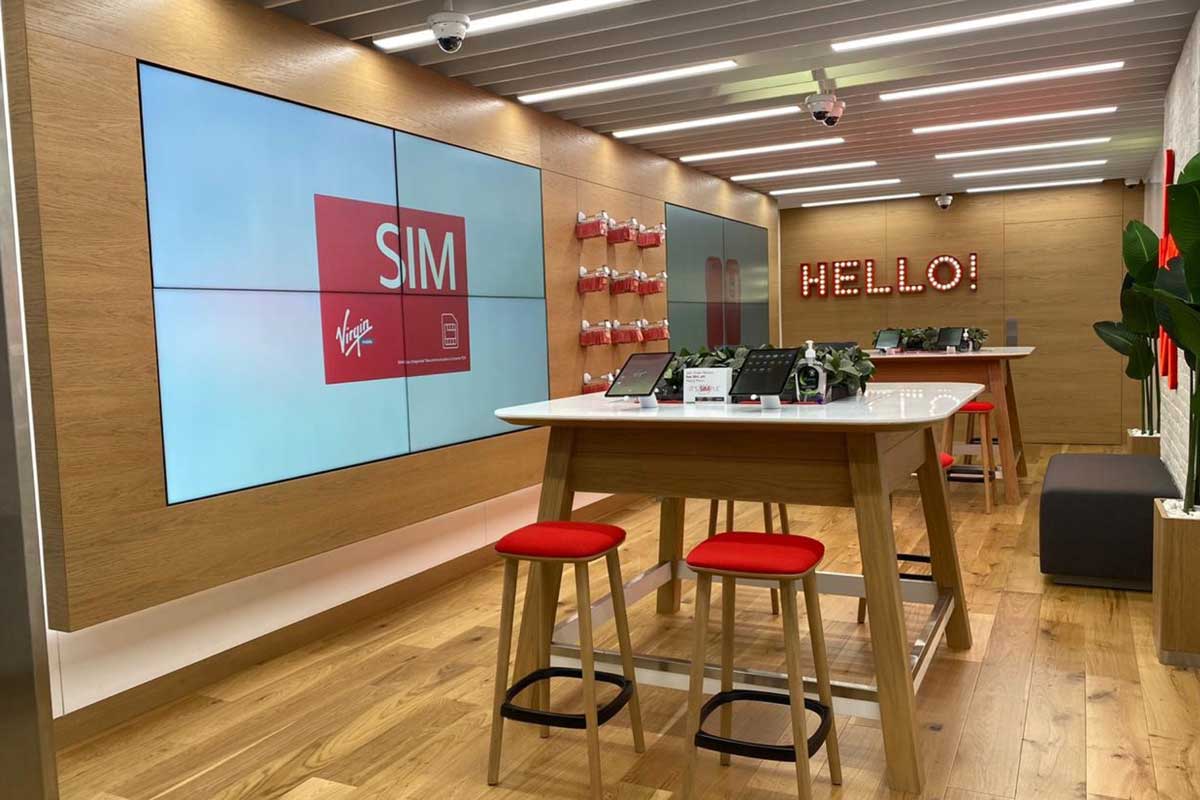The wider information and communications technology (ICT) sector, including telecoms networks and data centres, are estimated to be responsible for 3 to 4 percent of global carbon emissions. The Boston Consulting Group estimates that by 2040, the sector could be responsible for 14 percent of global carbon emissions, as research has suggested the 5G ecosystem will lead to a 160 percent increase in power demand by 2030.
Telecom companies around the world are looking at ways to reduce and offset their emissions in the global drive towards cleaner energy.
Arabian Business sat down with CEO and founder of Virgin Mobile Middle East and Africa Erik Dudman Nielsen to talk about how the company achieved net-zero carbon emissions in 2021 and their ambitions going forward.
I just wanted to ask you to expand on what nature-based solution means and how is it helping you reach net-zero?
At Virgin Mobile, we’ve been very much focused on being a digital-driven business. And overall, we have around 3 million customers in the region, and we have generated just above $350 million in revenue. So we see ourselves as trying to lead the change in the telco space.
But very much we are focused on people and customers, as well as the planet.
And we have a long range, we looked at the United Nations sustainability goals, and we put up strategies for the different areas.
And one of the key areas within the sustainability target is climate action, and we’ve been focusing on how to be carbon neutral, and we also look at what we can do to reduce our emissions across scope 1, 2 and 3 emissions. We’ve looked at policies to adopt hybrid cars, and at how we can move away from fossil fuels.
The team has set up office in a carbon-neutral building in Kuwait, and as far as scope 3 goes, we’re looking at our employees’ carbon footprints, like their business travel. Now we’ve set up policies to minimise business travel.

We’ve also looked at how to offset those we can’t remove. For example, last year we offset our office admissions by planting over 3,500 trees in the UK through United Nations approved offset programs.
Scope 3 emissions, because they’re indirect, are often some of the hardest to reduce. What has been the hardest part of tackling scope 3 emissions for you guys?
First of all, we teamed up with Dubai Carbon, and they measured our emissions and created a model and a framework to guide us.
And one of the most difficult things was to find out – beyond our own emissions – that our vendors’ emissions were significant. Our biggest source of emissions is the host-network operators.
As a chip manufacturer, plastic is a large part of your business, and I know you’ve done a lot of work to reduce single-use plastics.
We looked at the components of responsible production – or what it is our customers actually use. We had been using the traditional scratch cards that are about the size of a credit card, and the paper recharge cards would be thrown away after use. In Oman and Saudi Arabia, we’ve completely gotten rid of those cards, which accounted for around 50 tons of single-use plastic per year. So it’s not an insignificant feat to get rid of all that plastic.

But beyond single-use plastics, what other areas are you looking at?
We’ve started to audit our vendors, like our SIM card and recharge card manufacturer, and we found out through the audit they were actually in quite good shape.
But then we have made action plans with them for how they can reduce carbon further to become carbon neutral.
What role do you see carbon offsetting playing in these net-zero campaigns?
We see that as obviously a significant part, because of our reliance on the big telcom operators. In the Virgin app, you can opt into paying a bit extra on your plan to become carbon neutral.
We have the aim to actually go carbon negative, as a company together with our customers, and we want to try and incentivise our customer base to also become active in the move to carbon neutral.

In the long-term, is carbon offsetting going to remain to be a significant part of Virgin Mobile’s strategy, or does the company have plans to continue to look inward to offset its carbon?
We’re not just going for offsetting; we’re going for reductions. And then whatever is left, we offset. We put out policy guidelines for each unit. If we look at the areas within our control, we’re aiming for the maximum reduction we can achieve, and it’s a continuous process.
We’re working with our customers, but we’re also working with governments in Oman and Saudi Arabia to help with local offset projects. We’ve actually seen a demand from customers, but as a business leader, I believe that any business should be responsible for driving business in a sustainable way.







